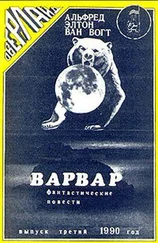An insular mentality, uncommunicative and proud.
A thin and insignificant language, skin-deep, agreeable and pleasant.
A religion of insects, exactly the religion of ants, Shintoism (with that famous cult of the ant-hill), an ant people.
A country where everything is known, everything open, everything spied upon, where no door can be closed, where one finds a spy even in one’s bath, quite naked, but a spy all the same (they keep you company everywhere); where a young girl who is not very rich is normally sold to a brothel keeper, to serve the multitude (as far as they have individuality!) (service, always service).
A people that is the prisoner of its island, of its masks, of its conventions, of its police, of its discipline, of its wrappings and of the cords that bind it.
But, on the other hand, the most active, the least talkative, the least ‘temperamental,’ as the English say, the most efficient in the world, the best-tempered, the most self-controlled. Having, without a word, reconstructed Tokyo in ten years; colonized and replanted Korea with trees, industrialized Manchuria. Conquered, modernized, beaten the record, and finally… what everyone knows.
A people, in fact, devoid of wisdom, of simplicity and of depth, over-serious, though fond of toys and novelties, not easily amused, ambitious, superficial and obviously doomed to our evils and to our civilization.

No actor in the world bawls like the Japanese with so little result. He does not speak his part, he mews it, belches it, and he trumpets, brays, neighs and gesticulates like one possessed, and in spite of it all I do not believe him.
All this is done ‘on the side,’ ‘to decorate.’ The frightful contortions he makes in the effort to represent his sufferings merely express the hell of a trouble he is taking to express suffering; it is suffering expressed by a man who no longer knows the meaning of it (a lot of esthetes, all of them) in front of an audience of esthetes, equally ignorant of the subject.
He weeps, he moans; a great carcass of groans from which there is nothing to be had.
Like the Japanese smile that only shows the teeth, politeness does not get across.
With voices like old grumblers, trying to give importance to their nonsense, their mediocre language, and their stories of vendettas, with prolonged groans, syllables spun out like she-cats in heat at night in their loneliness and nervous exasperation, Japanese actors are the most false, the most insupportable of all Asia and of Europe (Korean women singers included).
Their drama snarls, with the Voice of the People, the Voice of a Call to Order and of Remonstrance, but completely lacking in grandeur.
A loud voice that reeks of prejudice a thousand miles away, of life taken up by the wrong end, a background of ancient impostures and obligations, and a series of second-rate notions, but spelled with a capital letter, in the midst of which like the voices of the Categorical Imperative (the great master of Japan) the poor characters move about, victims, subordinate creatures, but giving themselves, as one might expect, great swashbuckling airs, with a peculiarly decorative type of courage, and there is such a lack of variety that one sees why in the No plays they wear a mask and why at Osaka the actors are simply wooden marionettes, life-size. 2
Lest this be mistaken for the conventions of a big theater, go to the small ones, the tiniest ones. Listen to the singers of Yosuri; attend a simple recitation, the same inferno can be found here. First some frigid scenery, very precise, and always well done. Then two women seated facing the audience, one on the right, the other on the left. Two. One reciting or howling, the other accompanying or clucking.
The reciter goes into hysterics seated — she howls, screams, but remains seated. Long periods of a nervous external racket that never touches one, but which at times corresponds more or less to a decorative line of feeling; the other accompanies her on a three-stringed instrument, and with a sort of paper-cutter taps sharply on the strings, thus producing the sound of sawing. The sawing act comes about every twenty seconds. A despairing sound. The instrument simply gives up the ghost, and twenty seconds later begins all over again. And so on for twenty-five or thirty minutes. And while she accompanies, she clucks. She goes ‘guieng’ ( guieng , or rien , or nieng ), then silence, then she goes hom , with a short, narrow, skipping and ridiculous o combining a sniffle, unwillingness, denial, low spirits, and above all a frightful hardness and discipline.
As for Japanese music, even that of the Geishas , it is a sort of sour, fizzy water that stings but does not cheer.
It has a false graviy, it tears, with a nervous tearing — the over-shrillness of the horror play. No volume, no poise. It amuses itself pressing and making a martyr of a nerve at the back of the ear.
The whistling of the wind in the reeds, and a certain uneasiness, produce a painful impression of remoteness, but not at all of immensity and of the infinite.
Remember that the motor horn is used in Japan in a useless and intensive manner. This instrument with its sharp notes delights them and makes Tokyo a noisier and more maddening city than Rome or New York.
Modern music: melodies taken from here and there, from gypsies, etc., others peculiar to Japan. Fresh and melodious young girl voices, the kind that are a bit too dovelike.
JAPAN
While many countries that one has liked become, as the distance from them increases, almost ridiculous or insubstantial, Japan, which I distinctly detested, grows almost dear to me.
It is their own fault, too, with their damned police. But there you are, the police do not bother the Japanese, he likes them. He wants order above everything. He does not necessarily want Manchuria, but he wants order and discipline in Manchuria. He does not necessarily want war with Russia and the United States (it is only a consequence), he wants to clear up the political horizon.
‘Give us Manchuria, let us beat Russia and the United States, and then we shall be able to settle down.’ I was very much struck by this remark by a Japanese, this desire to clean up .
Japan has a mania for cleaning.
In the opinion of a relatively dirty man like myself, washing, like a war, is a trifle puerile, because it has to be done all over again after a while.
But the Japanese likes water, and the ‘Samurai’ likes honor and revenge. The Samurai washes in blood. The Japanese even washes the sky. In a Japanese picture, have you ever seen a dirty sky? and yet!—
He also scrapes the waves clean.
A pure and icy ether reigns over the objects that he draws; as a result of this extraordinary purity, their country is believed to be marvelously bright, whereas it rains there all the time.
Still brighter are their music and their young girls’ voices, sharp and piercing, a kind of knitting needle in musical space.
What a far cry from our orchestras with their tidal waves , in which that sentimental reveler called the saxophone has recently appeared.
What froze me so at the Japanese theater was the emptiness, which one ends by liking, but which hurts at first and which is authoritarian; and the motionless characters, placed at either extremity of the stage, howling and going off alternatively, at a terribly high pressure, like living Leyden jars .

I am not one of those who criticize the Japanese for having reconstructed Tokyo in an ultra-modern style, for filling it with cafés, of the Exposition of Decorative Arts type (Tokyo is a hundred times more modern than Paris). For having adopted the precision and purity of geometry in their furnishings and decoration.
Читать дальше













